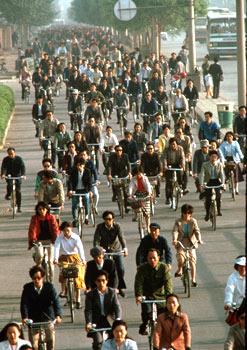
Bejing: Chinese people are living healthier and longer lives as medical and sanitary conditions in the country have greatly improved, according to the latest report from the Ministry of Health.
Residents’ average life expectancy, a key measurement of economic development and health care levels, increased to 73 years in 2005 from 71.4 years in 2000.
In addition, the infant mortality rate decreased to 1.53 percent in 2007 from 2.55 percent in 2003. Last year, 36.6 people per 100,000 women died during pregnancy or childbirth, compared to 51.3 women per 100,000 in 2003.
According to the report, the improvement in Chinese people’s health conditions was attributed to increased spending on medical care and enhanced medical services provided across the country in the past five years.
In 2007, China was estimated to have spent 1.05 trillion yuan (US$144.43 billion) in healthcare, accounting for 4.82 percent of the gross domestic product, with the per capita medical expenditure standing at 781 yuan.
The government is shouldering more of the medical expenditure in the past five years. Government spending, as a proportion of the country’s total medical expenses, increased by one percent from 2003 to 2006, while residents’ spending dropped 6.5 percent in the same period.
As a result of increased investment in medical care, people are able to enjoy better medical services. By the end of last year, a total of 315,000 medical institutions were established, 24,000 more than that in 2003. The number of medical practitioners, including assistant practitioners, rose to 1.56 per 1,000 people in 2007 from 1.48 per 1,000 in 2003. The number of registered nurses per 1,000 people climbed to 1.12 from one nurse during the same period.
The report adds China has made much effort to improve the public health and medical system in the past five years, covering maternity and childcare, disease prevention and medical insurance in both urban and rural areas.
